Xi Jinping’s true aim, in my view, isn’t to severely limit the spread of the coronavirus, seeking its ultimate eradication, rather to curtail dissent particularly any views contrary to his handling of China’s increasingly desperate economy. Mao’s Xi’s purpose is to completely eliminate all opposition.
This intentional security policy has now been extended to the People’s Bank of China itself. The very engine (formerly) of Keynesian doctrine, the 2009 group of “heroes” who, under the respected leadership of former Governor Zhou Xiaochuan faithfully employing the Keynes Bible, purportedly rescued the nation from the monetary pandemic then ravaging Western economies.
Since the 19th Party Congress (as you’ll see below), however, the PBOC’s monetary policy has been largely silent.
Days ago, out of the blue a top policymaker – make that former top policymaker – was abruptly charged with corruption. The Communist Party’s Central Commission for Discipline Inspection publicly announced it was investigating Sun Guofeng for “suspected serious violation of laws and discipline” of anti-graft laws. Rumors have been circulated (by whom?) alleging Sun has been sharing insider information in order to personally benefit.
Everyone over here heard Xi start talking about government spending and immediately heard Keynes. They should've let him finish his Mao first.https://t.co/uxIRq77BWg
— Jeffrey P. Snider (@JeffSnider_AIP) May 12, 2022
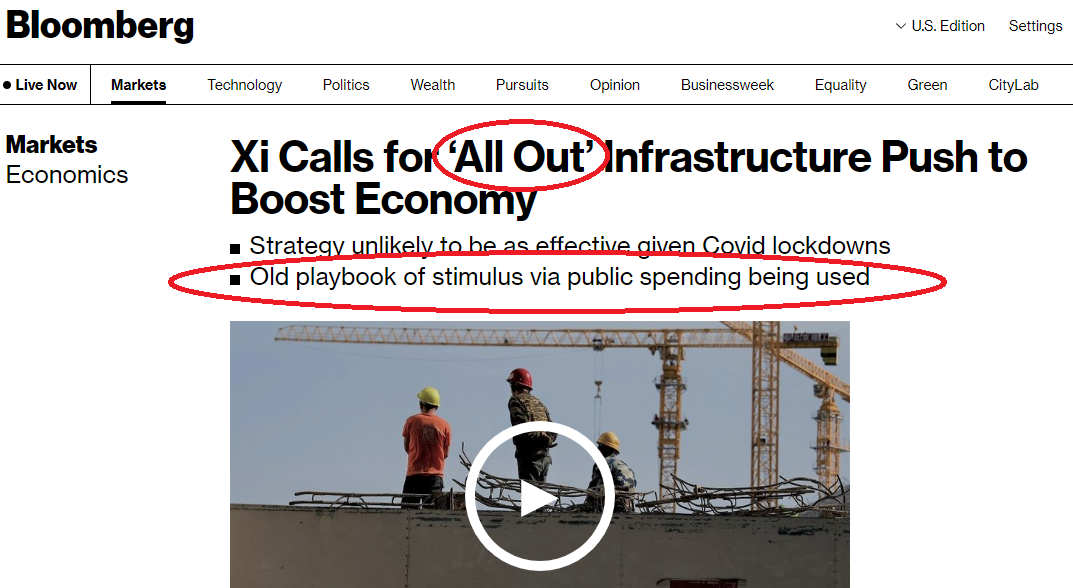
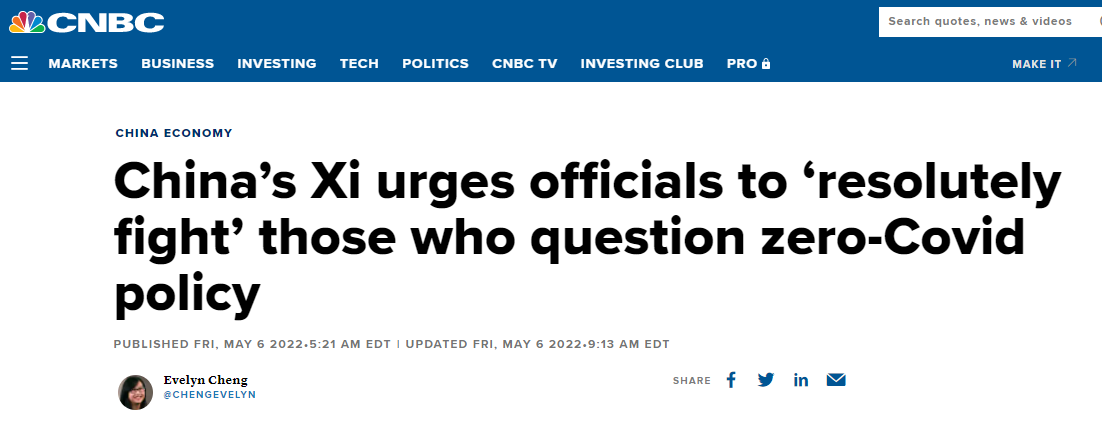
Does anyone truly believe that? Well, yes, pretty much everyone in the Western media, from what I can tell.
If you were at all on the fence about which way to think, think about what Sun Guofeng’s job had been until mere days ago: head of the PBOC’s MONETARY POLICY department.
To be perfectly clear, I have no direct evidence nor any inside connections that I might exploit for political let alone information purposes. These are instead rather reasonable dots to connect given the trends in China’s economy parallel to these darker trends in Chinese politics.
Xi announced his big “stimulus” would focus on “national security”, and that brings a fresh – and terrifying – meaning to the word “stimulus” as it is now being applied to the central bank. Might Sun have complained a little too much even on the inside of closed doors about the lack of monetary response to China’s more desperate woes?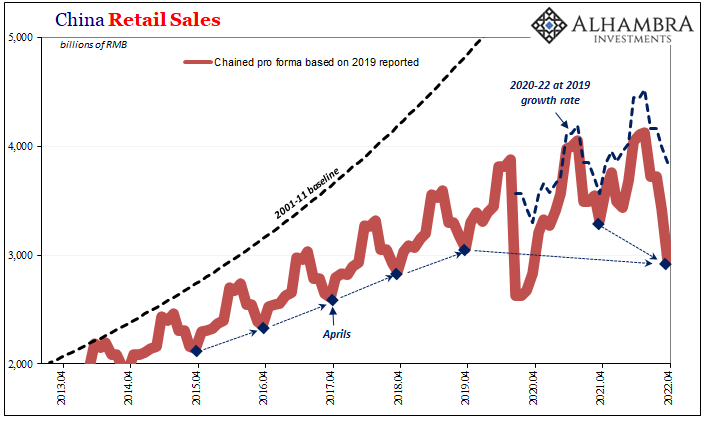
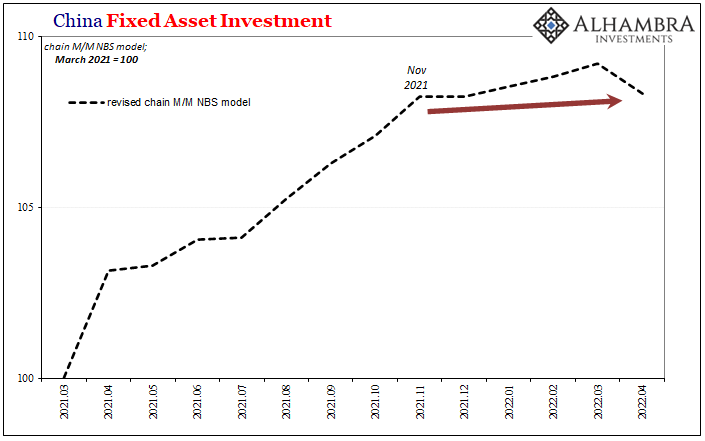
To that end, despite expectations for more aggressive “stimulus” before this week, while Sun Guofeng was being hauled in front of the cameras, his name dragged in the dirt for public shame (before who knows what will be his ultimate fate; I can’t imagine it’s anything but Mao-like), the central bank’s monetary policy department had decided to recommend doing…little to nothing. Surprise?
There was no cut to the MLF rate, but there was a cut in MLF use (this is included below in the PBOC line item for Claims on Other Depository Corporations), though I suspect this was because of growing fears and risk aversion among commercial banks rather than by top-down directive. Yet, no top-down directive has been issued to get commercial banks to use more MLF as “stimulus.”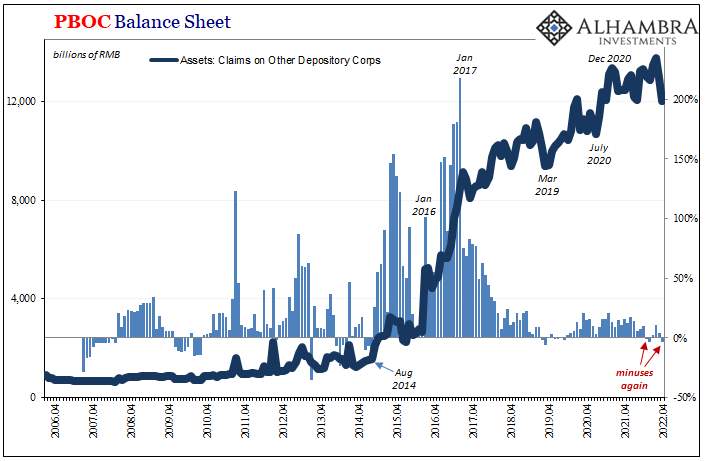
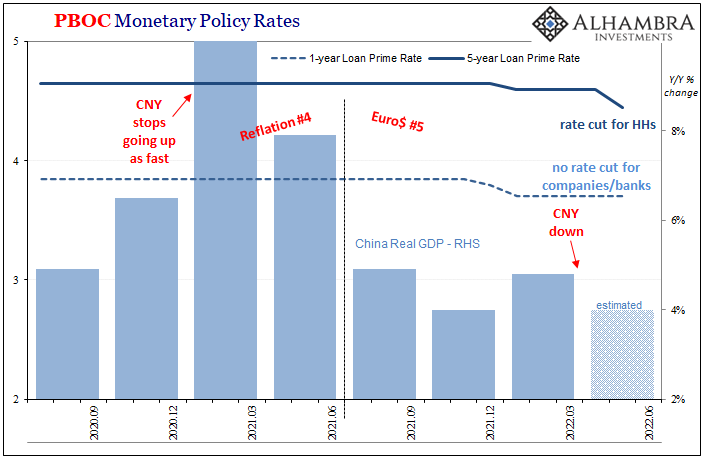
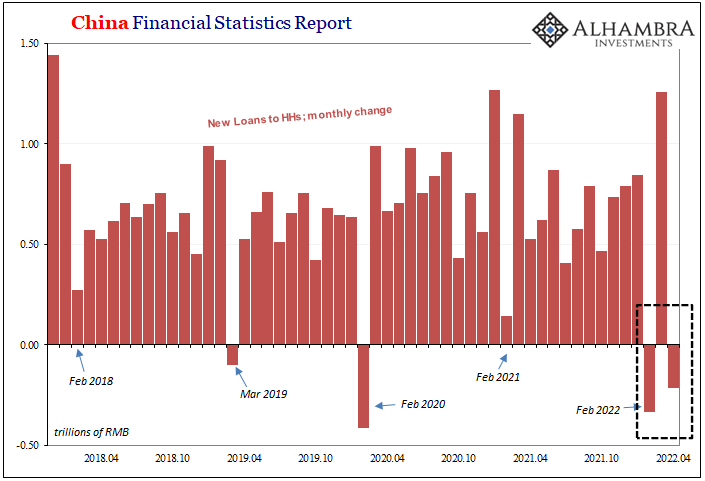
With no change in the MLF rate, therefore there was no cut in the 1-year Loan Prime Rate (LPR) which is the benchmark for corporate credit (above). In fact, despite even Western expectations for several, the PBOC has maintained strict hands-off though, again, the Chinese economy is on the precipice of truly awful possibilities (beyond the artificial downside created by the government’s initial COVID overreaction).
Saying no to lower corporate loan rates, policymakers said yes to the troubled real estate sector – but only for households. Undoubtedly in response to the ugly loan data contained in the PBOC’s Financial Statistics Report, the 5-year LPR was dropped by 15 bps (above) in a very Xi-like preference for households over corporate and financial businesses (the 5-year LPR is the primary reference for household mortgage rates).
Following this, the PBOC also allowed the aggregate balance for bank reserves to decline yet again in April (below). This outcome consistent with both Euro$ #5 (including the timing of it) and Xi’s theme of common prosperity; at least interpreted as less narrow financialism and preference for the financial sector in favor of more focus on China’s struggling citizenry who are going to struggle even more as growth continues to slow and even decline.
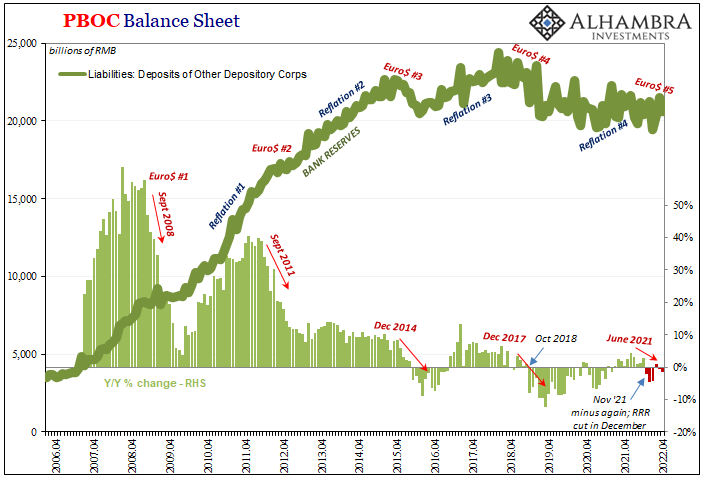
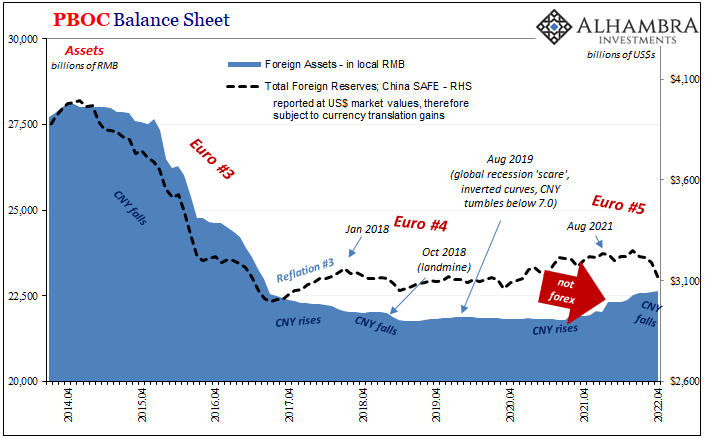
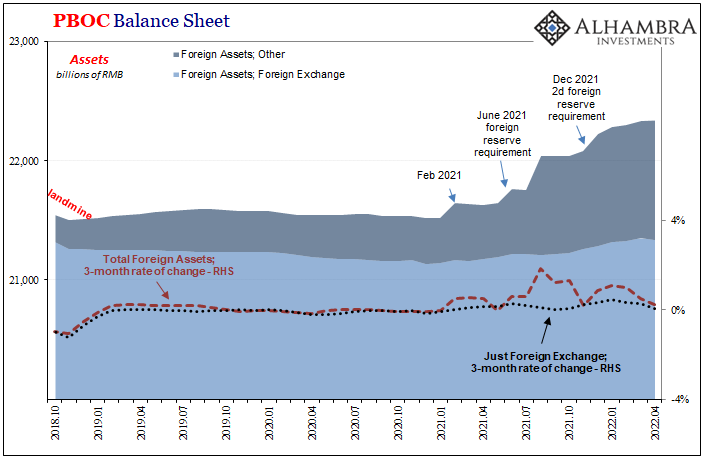
No Keynes here, only Cultural Revolution 2.0.
And I’ll add, too, this also encompasses the PBOC’s undeterred gamesmanship when it comes to foreign exchange and foreign reserves (above). There was, for yet another month in April, very minimal change in the central bank’s forex holdings even as SAFE reported the largest decline in foreign assets (not just on prices) in years. April was also the same month when CNY began its latest plummet.
According to every other source, including that same Financial Statistics Report (below), the (euro)dollars are drying up for China (thanks Tokyo) yet this hasn’t impacted the central bank’s holdings despite how CNY’s daily trading is “managed?” No, this is intentional for more obvious reasons of obfuscation, not the sort of procedure you’d find recommended in the central bankers’ handbook. 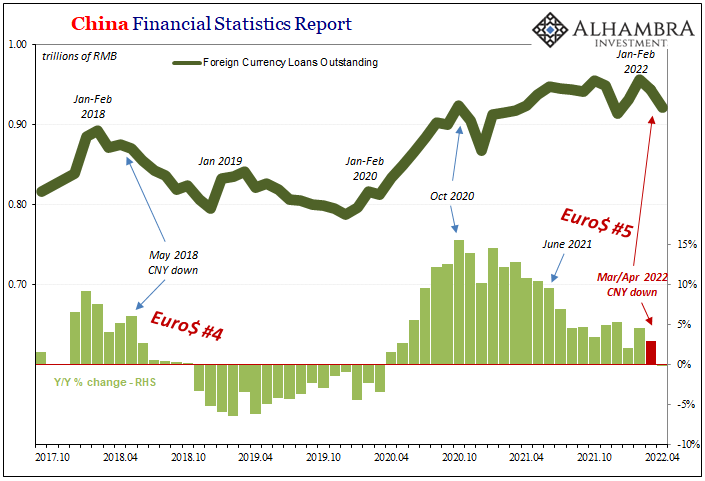
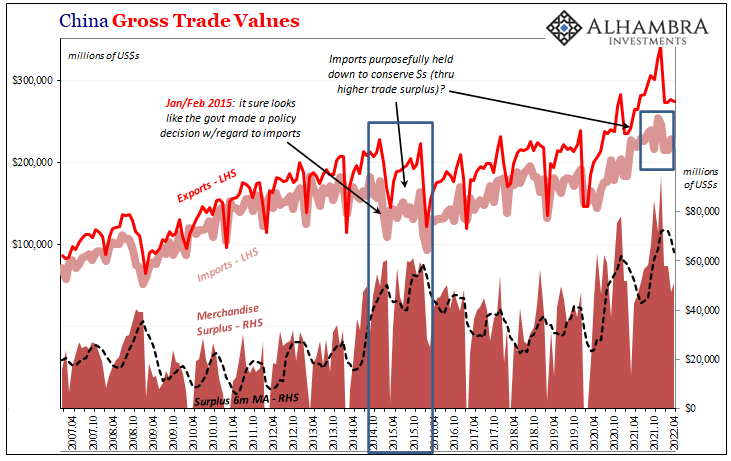
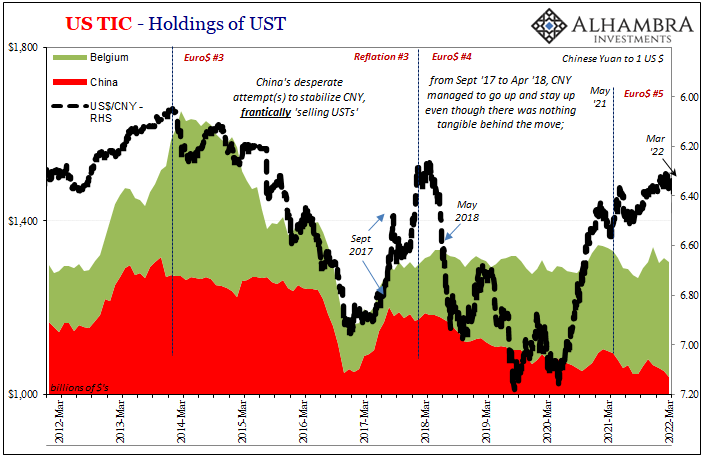
This rigging of forex is something, “coincidentally”, Sun Guofeng’s former bureau might not be completely comfortable maintaining or fully agree with and to – without, just maybe, a clearcut demonstration of authority rather than argument from above.
If you think the American or European economies are heading toward a bad place, and all evidence indicates they are, then the Chinese are on the same path only ahead of them scheduled to arrive there first. Among the few in China who might be able to more clearly see this coming, as, say, just spitballing here, someone atop the central bank’s monetary policy department, the prospects really might make you think twice if not express concern and doubt as to the wisdom of following this path.
Until expressing doubt gets you a “corruption” charge, that is.
It might sound like a conspiracy theory except this is just how Communism operates; this is how Xi has operated from his very first days on his throne. But it wasn’t a clearcut throne until that 19th Party Congress, before then what had made Xi into Emperor was a million (estimated) bureaucrats who suddenly found themselves afoul of anti-graft laws.
From the BBC in 2016, leading up to Xi’s coronation the following year:
China has punished more than one million officials for corruption over the past three years, the government says…But some observers say the campaign has also been used by Mr Xi to purge political rivals, which he has denied.
Not “some observers”, anyone with a smidgeon of common sense and free from political bias can see this for what it has been. Today, it is no longer the purge of rivals, rather the purge of opposition.
That the pogrom has now ensnared a high official at the central bank can only lead to one rational conclusion: China’s economic course is set and rather than try to change it – which Xi knows he can’t, not really, since from Day One (Euro$ #2) it has been out of his hands – the Communist Party will instead “manage” the “decline” by whatever means necessary.
State security, not government stimulus. The consequences aren’t, nor will they be, limited to China.
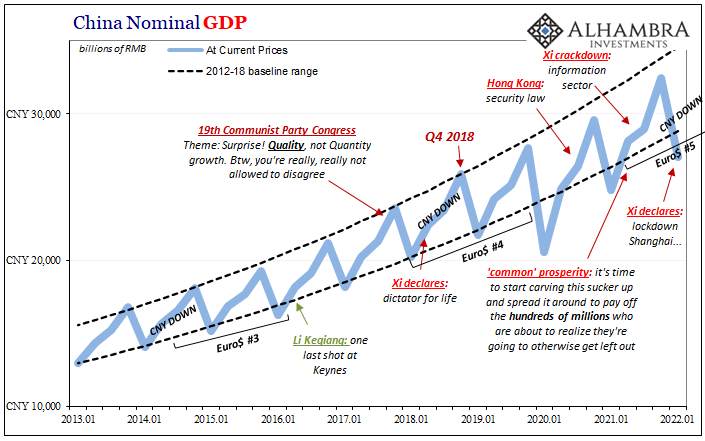
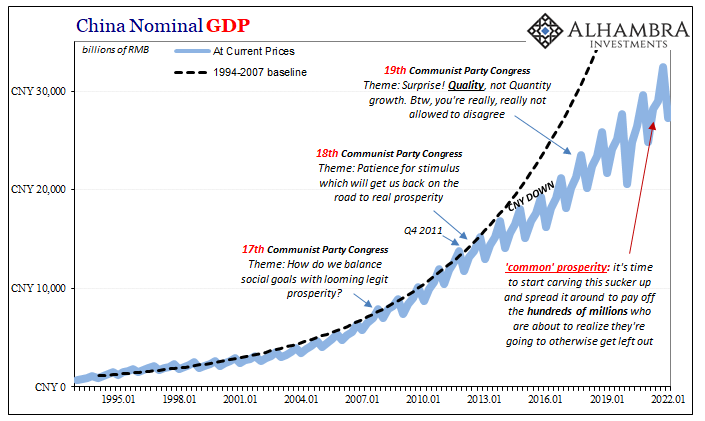
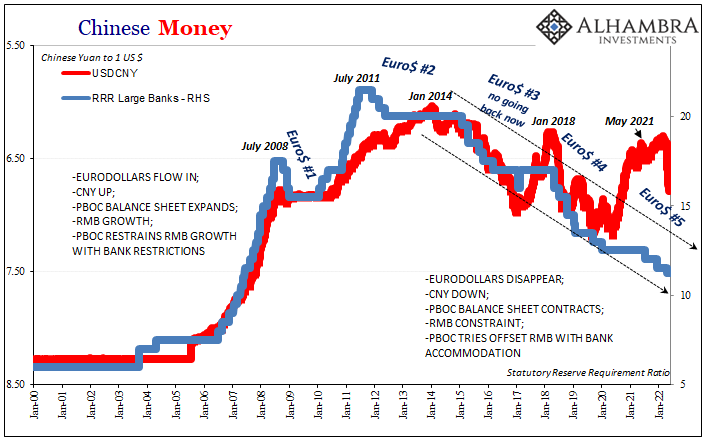

Stay In Touch